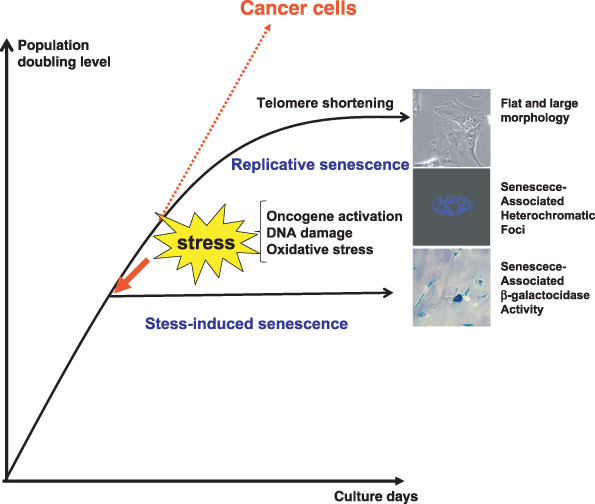Figure 1.

Cellular senescence. Normal human fibroblasts enter a state of irreversible growth arrest after a finite number of cell divisions in vitro caused by telomere shortening but cancer cells appear to bypass this replicative limit and proliferate indefinitely. Recent reports have shown that cellular senescence can also be induced prematurely by a number of cellular stresses such as oncogenic stimuli, oxidative stress, and DNA damage, before reaching their limits of replicative life span. This type of cellular senescence is called ‘stress‐induced senescence’. Senescent cells are characterized by a large and flat morphology, senescence‐associated acidic β‐galactosidase activity, and senescence‐associated heterochromatic foci.
